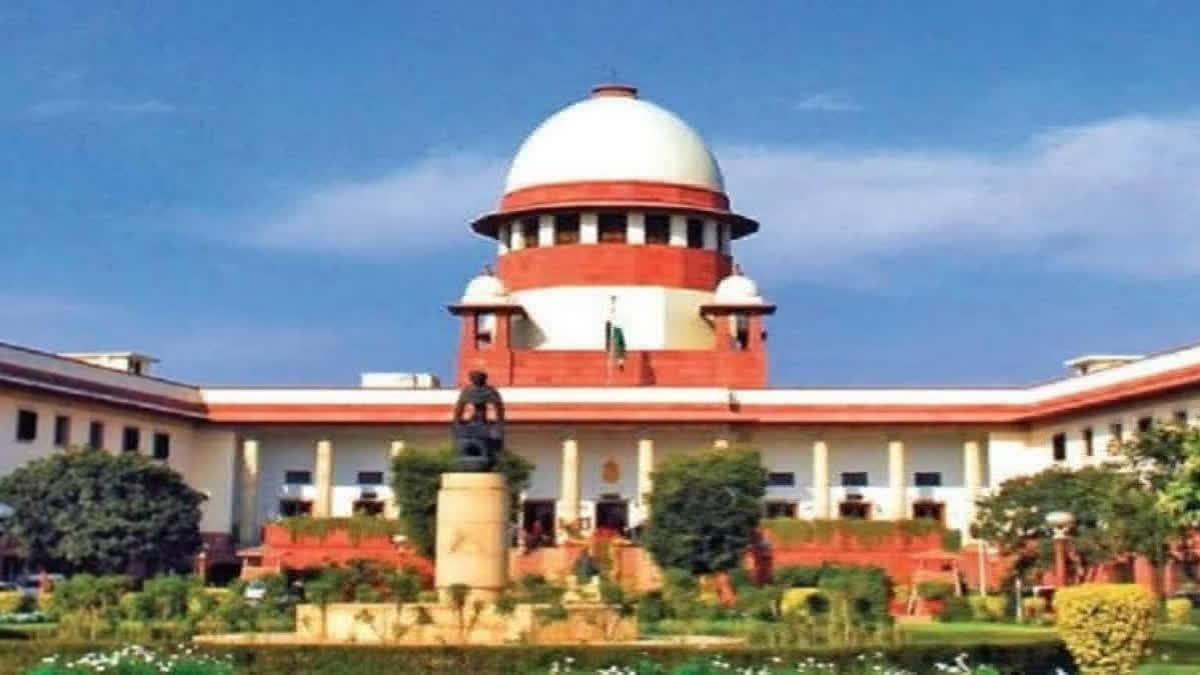New Delhi:The Supreme Court on Wednesday enhanced the compensation to a woman with 75 per cent intellectual disability due to a road accident, saying, “effectively, while her body grows, she will remain a small baby”, and added marriage/companionship is an integral part of the natural life of a human being.
A bench comprising Justices B R Gavai and K V Viswanathan observed that marriage or companionship is an integral part of the natural life of a person.
The bench said the appellant has not only lost her childhood but also her adult life. "Although in the present case the appellant is capable of reproduction, it is near impossible for her to rear children and enjoy the simple pleasures of marital life and companionship," it added.
“The appellant will remain dependent on another person for the rest of her life. Even though her physical age will increase, her mental age will be that of a child studying in the 2nd Standard/Class. Effectively, while her body grows, she will remain a small baby," reamrked the bench.
The bench said the woman was seven at the time of the accident in June, 2009, and according to the medical certificate, she suffers from moderate intellectual disability.
The top court enhanced the compensation to Rs 50.87 lakh. “Faced with such a situation, the family of the appellant must be financially equipped to deal with the medical conditions, current and potential”, said the bench.
The bench delivered its verdict on an appeal filed by the woman challenging the November, 2017 order of the Delhi High Court that awarded her Rs 11.51 lakh compensation.
The bench said the approach of the High Court on appreciation of the evidence that the appellant would only be requiring a part-time attendant is erroneous. “On the contrary, we are of the opinion that the appellant would be dependent on an attendant throughout her life and on a full-time basis," it said.
The counsel, representing the appellant, submitted that as per the doctor's evidence, the woman sustained 75 per cent moderate intellectual disability
According to the doctor, who gave evidence in the matter, the appellant would also have severe apathy and therefore, maintaining/forming marital/familial bonds with the aforementioned conditions for the appellant is very difficult.
The bench said the woman would remain dependent on another person for the rest of her life. In June 2009, the appellant was on foot along with her family members who were on their way home when a speeding car hit her when they were crossing the road.
The bench noted a claim petition for grant of compensation under the provision of the Motor Vehicles Act, 1988, was filed before a Motor Accident Claims Tribunal which awarded a compensation of Rs 5.90 lakh. The appellant moved the High Court seeking an enhancement of the compensation. The High Court enhanced the compensation to Rs 11.51 lakh. The appellant moved the top court aggrieved by the paltry enhancement.
The apex court enhanced the compensation amount under the heads of loss of income or earning capacity, pain and suffering, loss of marriage prospects, attendant charges and future medical treatment.
"We direct the insurance company (respondent No. 2) to disburse the compensation awarded to the appellant as above. Obviously, the Insurance Company shall be entitled to adjust the amount already paid, if any," remarked the bench.
